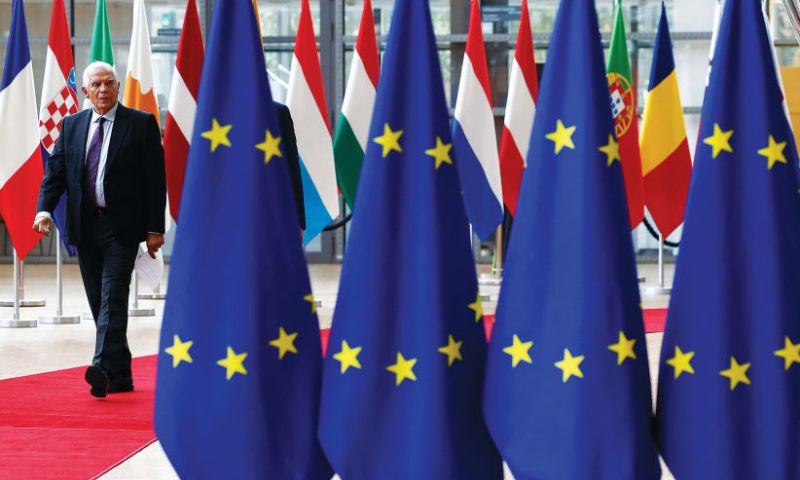LONDON: Over 200 Europe Union staff members have signed a letter to key officials criticized the bloc the EU’s humanitarian response to the Gaza conflict.
The letter, signed by 211 members, expressed growing concern over the perceived neglect of the Palestinians’ plight, especially following the International Court of Justice’s January ruling highlighting a credible risk of genocide in Gaza.
The signatories emphasized that Israel’s departure from a rules-based global order in favor of force contradicts the EU’s core values.
“Our grandparents, witnesses to the horrors of World War II, created Europe precisely to avert such a grim world order,” the signatories declared. “To stand idly by as the international rule of law erodes would be to fail the European project as they envisioned it. This cannot happen in our name.”
Addressed to European Commission President Ursula von der Leyen, European Parliament President Roberta Metsola, and European Council Chief Charles Michel, the letter urges EU leaders to advocate for an immediate and lasting ceasefire, the release of all hostages, and a halt to arms exports by EU members to Israel.
The signatories expressed disappointment in the EU’s perceived inability to respond effectively to these urgent issues, asserting that this inaction contradicts the values upheld by both the EU and themselves as individuals.
This letter follows a recent demonstration in Brussels where approximately 100 EU staff members protested against the conflict. Manus Carlisle, one of the participants, described the protest as a peaceful assembly in defense of the fundamental rights, principles, and values upon which European institutions are founded.
Zeno Benetti, one of the letter’s organizers, said they were stunned by the silence of EU leaders on the Gaza crisis, especially given their vocal stance on human rights.
He stressed that ignoring such events would be unacceptable, as it would compromise the very values the EU claims to champion.
Benetti further emphasized the importance of upholding principles of international law, which he believes are currently under threat.


